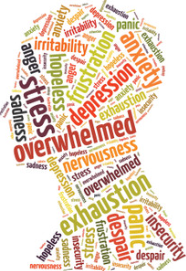September 2025, Geneva- More than 1 billion people worldwide are living with mental health disorders, according to new data from the World Health Organization (WHO). Conditions like anxiety and depression are now the second leading cause of long-term disability, driving up health-care costs and costing the global economy an estimated US$ 1 trillion annually in lost productivity.
The findings, published in World Mental Health Today and the Mental Health Atlas 2024, reveal both progress and persistent gaps. While 71% of countries have integrated mental health into primary care, only 45% have laws fully aligned with international human rights standards. Median government spending on mental health remains stagnant at 2% of total health budgets, with stark disparities: high-income countries spend up to US$ 65 per person, while low-income nations spend as little as US$ 0.04.
Suicide continues to claim lives at alarming rates—727,000 deaths in 2021—and current efforts fall short of the UN’s 2030 target to reduce suicide rates by one-third. On the current trajectory, only a 12% reduction will be achieved.
Despite these challenges, there are signs of momentum. Over 80% of countries now include mental health and psychosocial support in emergency responses, up from 39% in 2020. However, fewer than 10% of countries have fully transitioned to community-based care, and access to outpatient services and telehealth remains uneven.
WHO Director-General Dr. Tedros Adhanom Ghebreyesus called for urgent action:
“Investing in mental health means investing in people, communities, and economies… Mental health care must be treated not as a privilege, but as a basic right for all.”
The reports will inform global dialogue at the 2025 UN High-Level Meeting on Mental Health and Noncommunicable Diseases, scheduled for September 25 in New York.









